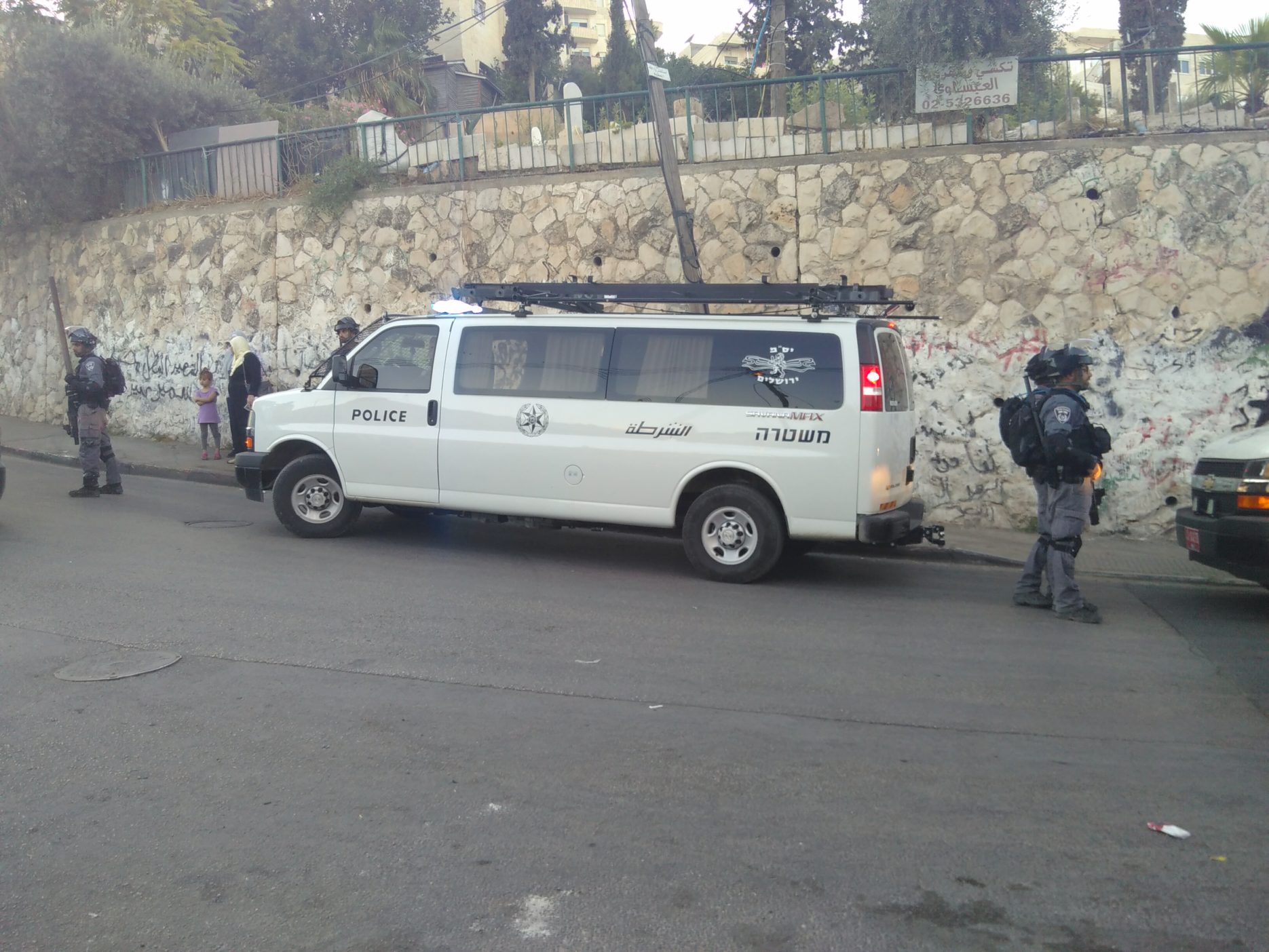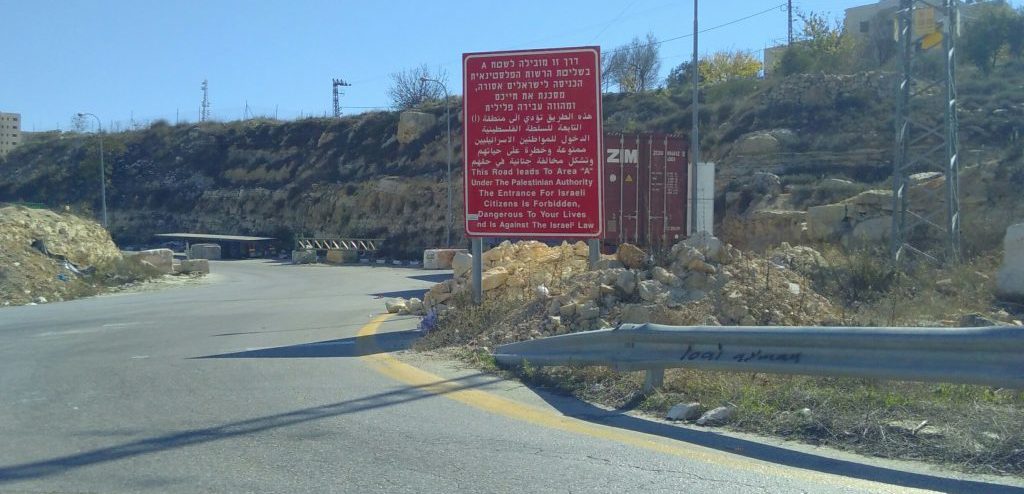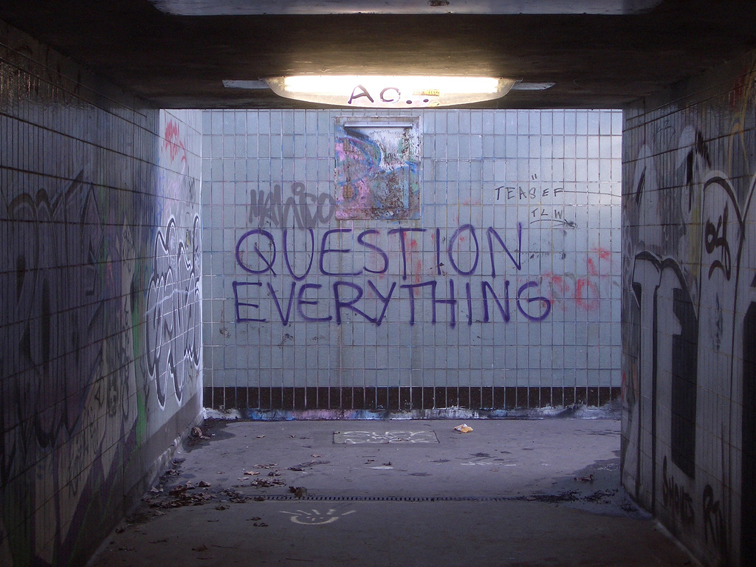Imagine a neighbourhood or village close to you. For some time now the police is strongly present there every day. Heavily armed, they patrol, arrest people, march through the place in great numbers and want to show they are in control. The people living there feel insecure, threatened and experience a great sense of injustice. For different reasons sometimes a more violent dynamic between the two arises: policemen start throwing shock grenades, while villagers throw glasses and other items to the police. Who started is often unclear. Step-by-step the neighbourhood or village turns into something that feels and looks as a war-zone. The tension between the two becomes only stronger. For the foreseeable future peace seems impossible. Even if the physical presence of the police might fade away, anger and hatred from both sides often remains. And both develop a narrative that ’the other’ is the source of conflict.
As someone living close-by: what do you do? In case you would live far away: do you carry a responsibility to help as well? Especially if you live in a safe area where people live quite peacefully with each other, should you step up and act to solve injustice elsewhere?
To many of you, the readers, these questions have a theoretical or rational character. With this I mean that you are not confronted with great injustices on a daily level. That is not to say you might not face disagreements and conflict. We all do. It is part of human life. However, fortunately, there is a good chance you rarely encounter violence, oppression and feel that your life is in danger. This is, unfortunately, not the complete reality. Quite the opposite: there are many places in the world where great injustice is part of daily life. My question is: do you, we, carry a responsibility to make change happen in those places? If so, how?
Not a theoretical question!
To me this is far from a theoretical issue or ‘just’ an interesting philosophical question to discuss over dinner. Since I started to live in Jerusalem and become familiar with life in Israel and what is still called ‘Palestinian territories’, I feel confronted with this question every day. Recently, in the past two months, conflict could hardly come closer to myself. In the neighbourhood / village right next to me (a few hundred meters away), called Isawiyya, the imagined situation I started with is reality. The police says to have signs terrorists stay in Isawiyya, there are criminals that need to be arrested, people act violently against security forces and some simply do not abide by the law (varying from driving too fast to kids that drive their bike without a helmet). The Arabs/Palestinians claim the police harasses them, provoke to get a violent response, break laws and act unjust in many ways. Moreover, they feel the municipality, leave alone the state of Israel, does not care about them at all. Every day, in this small place, with narrow streets, the police act in ways they claim to be necessary to establish security and peace. Due to the stated ‘high risk’ actually many who appear to be ‘police’ are part of either the para-military border police or special police squad to combat violent riots and terrorism. I will, therefore, refer to them as ‘security forces’.
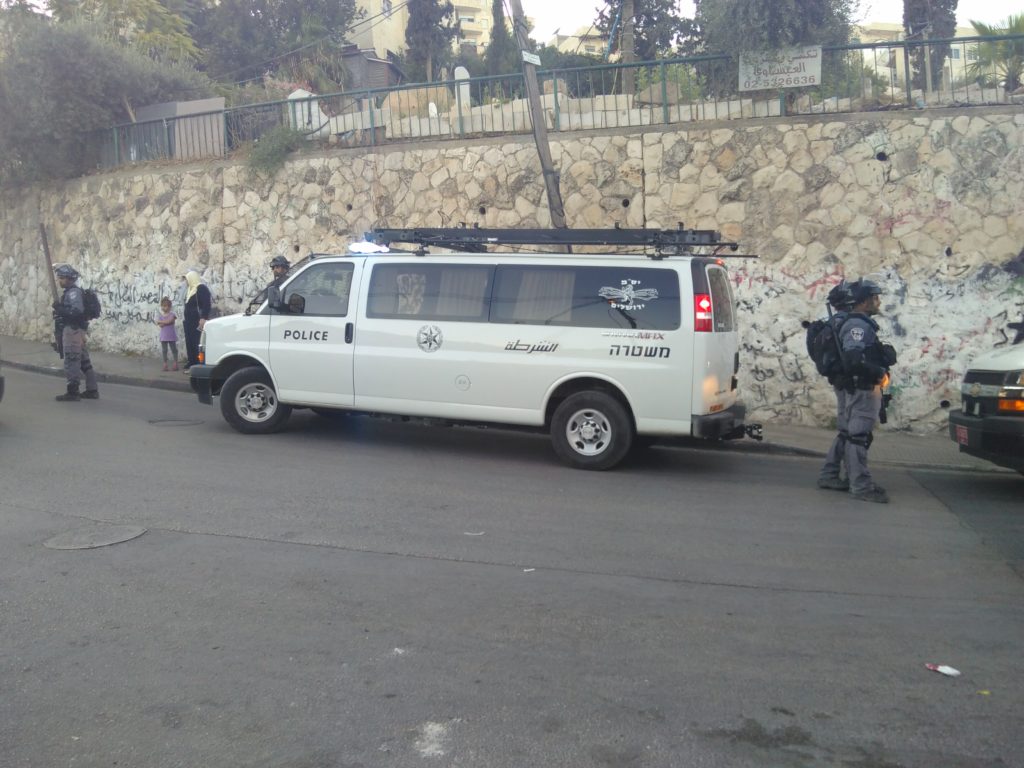
It is possible for me to just continue my life – studying, writing and so on. I would ‘only’ hear shouting and sometimes gunshots or explosion of grenades – but never within sight since Isawiyya is significantly lower than the the hill I live on and both buildings and natural surrounding prevents seeing what happens on the streets. Moreover, I am quite confident that the safety in the (Jewish) neighbourhood is no longer secure. If I can entertain the thought of not getting involved instead of being engaged, how much more so for those who or further away, less related, more comfortable or maybe indifferent. But everything inside me tells me I can not ignore this situation. I have to act – somehow. What is my responsibility? How can I help? Is it possible for me to make change happen here? And, for you, the reader, the same questions hold: to what extent can, or should you be an ‘actor’ in this and other situations? In short: what do we do in the face of conflict and how can we help to bring peace.
What is conflict and peace?
It might be helpful first of all to establish what we mean with ‘conflict’ and ‘peace’. Many of us associate these terms with aggression, (extreme) violence and war. Probably we imagine a situation in which people fight – whether it is between individuals, groups or on the level of states. Though this clearly points to conflict and an absent of peace, I don’t think we grasp the nature or essence of both terms. It is just one possible expression of something deeper. I have explored this before in another article (reference to article) and want to address this now more directly. To do so I will draw from my own tradition & practice – buddhism. In particular, I will use things Donald Rothberg recently discussed when he gave a lecture about conflict in Jerusalem. But I am confident, that all of us have sources available that point in the same direction: whether it is our culture, religion or other spiritual practices. In fact, I think that we share a human nature and heart that carries the same wisdom. I will come back to that later.
Conflict, as defined by Donald, is on a very basic level pointing to a difference. This can be a difference between our own needs (do I take a day of rest or write this article?), between two people (one wants to go on a holiday, the other wants to save money) or between larger groups (both defending their actions based on an experienced and claimed injustice or threat to their life). Peace, then, can be seen as the opposite: when the difference is resolved. The current (fourteenth) Dalai Lama emphasises the following in the book Ancient wisdom, modern world (which I will refer to more often):
“[…] we need need to make a distinction between peace as a mere absence of war and peace as a state of tranquility founded on the deep sense of security that arises from mutual understanding, tolerance of other’s point of view and respect for their rights.”
As in the imagined situation, and reality in Isawiyya: if the hostility towards each other and tension disappears, it only means that there is peace in the first sense. It does not mean there is peace on the deeper level. It is, therefore, important to note that on a short-term we might aim for the absence of war but need to keep the deeper vision in mind for the long-term. Furthermore, seeing conflict as ‘difference’ makes it less ‘negative’ and a bit more ‘neutral’ or ‘lighter’ to approach. We see differences within ourselves and in relationship to others every day. Becoming aware of that and see how we deal with conflict on a smaller level, is a first important step. If we learn to solve those in a skillful manner, we can slowly work towards becoming a force for good on a broader level. The question, on both levels, is: how?
How to be skillful in conflict and become a force for good?
If we face conflict, on a small or broad level, we can deal with it in a skillful and unskillful manner. We all know that acting from hatred and anger does not solve the conflict. Violent manners, whether it is verbal or physical, can quiet down the conflict temporarily perhaps. But it always resurface at some point, in one way or another. The same holds for trying to avoid conflict. This is also true for conflicts within ourselves. If, on the one hand, I want to volunteer and be active in ways to bring social change. But, on the other hand, feel I want to share time and take care of family and friends close to me. At some point, I will become exhausted and experience that I become estranged from a part within myself and giving up on at least one of them. Finding a compromise is already a great step forward and can be the most realistic on a short-term. But, eventually, we want to work towards the ideal situation in which the different needs are completely fulfilled and peace on the deepest level is achieved. Both on a small level, within ourselves and between the ones close to us, as on a broader level in society if not the entire world. There are, I suggest, at least three steps we can take to achieve this. I will put them forward here as a beginning for ourselves to become (more) skillful in resolving conflict and, ultimately, a force for good in the world. Note by the way that they appear to be chronological – first, second and third – but are strongly inter-related. In other words, we need to move constantly between the three steps.
Step 1: Become aware and embrace conflict
First of all, it is necessary to become aware of conflict. It often happens that we wonder why a situation is so tiring and how a particular argument started. Or a tensed atmosphere in a region, country or between countries came into being. We have overlooked the conflict and did not see the differences between our own needs, other people or different groups. Sometimes we perhaps see it on the surface. In Isawiyya one Arab/Palestinian, according to the security forces, was about to shoot fireworks in their direction and they responded with shooting at him with live fire. Something he did, tragically, not survive which has hurt the direct family and people in Isawiyya deeply. But we need to understand that this is an expression of a much bigger pattern that is tied to the different needs of the two groups involved. The security forces for example have a need to be safe and (at least try to) uphold security and justice for everyone. Whereas the people in the village have a need to feel free, being taken care of by the municipality and be able to give shape to their community in their own way (be it within the State of Israel or in a Palestinian state). (You can read more about the situation here)
Tied to this first step is, which for many of us feels counterintuitive, to embrace conflict. Whether we want it or not, conflict is part of our life. For some perhaps weak and in minor ways, for other strong and big. Once we become aware that there is conflict we can embrace it to question what the genuine needs really are and how to solve them. When I am writing this it is, for Jewish people at least, Shabbat. Something that has a deep value and we can all learn from: a day of rest, putting down our daily worldly activities for a moment and bring our attention to the meaning of all things. All three Abrahamic religions, in their own way, understand the need and spirit of such a day and times of ‘rest’ throughout the year. It also shows similarities with meditative practices in buddhist tradition, and going on retreat. But I am, once again, behind my laptop. Writing this article. What are the underlying needs? Do I need physical rest and / or mentally? Do I need to act upon a responsibility I experience? Can I meet both of them? On the background my quite busy schedule during the week plays a role. How does that relate to these and affect the possible (ideal?) solution? These questions bring me to the second step.
Step 2: Internal work (mindfulness / meditation)
When we face conflict, if on a the smallest level, we often react immediately. We do so out of habit. Or, put differently, a deep conditioning by our surrounding and experiences in live. When somebody tells you that you should have done x or y, you immediately might feel blamed or rejected. Maybe you start yelling or, even worse, become physically violent. Or maybe you decide to walk away, which can be a bit more wise perhaps but also does great harm to yourself and keeps the conflict in place. We might fear that we loose something, or it can confuse us and feel uncertain when we recognize and embrace that there is a conflict.
Instead of reacting immediately, we can learn to see first what is present in the moment. What are our thoughts, feeling and emotions? They are the source of our actions. My teacher, Dzogchen Ponlop Rinpoche, speaks often about creating a ‘mindful gap’ (read here for his explanation: http://www.dpr.info/uncategorized/mindfulness-is-not-what-you-think/) or watch this: https://www.youtube.com/watch?v=0uZDVZ3NZcw). We need this gap to sea what we experience and, based on that, try to act in a wise & skillful manner. Which is, according to buddhist tradition, not based on our thoughts, feelings and emotions. But rather spiritual qualities that belong to our true human nature: understanding, empathy, compassion, loving-kindness. Solving conflict, thus, starts and lies within each of us. As the Dalai Lama states:
“Peace in the world […] depends on peace in the hearts of individuals. This in turn depends on all of us maintaining ethics by disciplining our response to negative thoughts and emotions, and developing basic spiritual qualities.”
As a consequence, he says:
“If, as individuals, we disarm ourselves internally – through disciplining our negative thoughts and emotions and cultivating positive qualities – we create the conditions for external disarmament. Indeed, genuine, lasting world peace will only be possible as a result of each of us making an effort internally.”
Whether it is through mindfulness, meditation, prayer or another spiritual practice: internal work needs to be part of our life if we want to resolve conflict. From there we can turn our attention to the world around us – on a small and broad level – and become a force for good.
Step 3: Become a force for good
If we are able to develop an inner attitude of responsibility and be able to solve our inner conflicts and the ones we are directly related to, we already started to build a kinder, more compassionate world. But we should not stop at this smaller level, but extend it to a broader level. We all carry a universal responsibility. This is connected to at least two aspects.
First of all, all life is interrelated. Looking at the situation in Isawiyya for example: the security forces buy their coffee and pita for lunch at a local gas station which is located just before you enter the place. Not only are they served by someone from the village, their pita has most likely been made by someone from Isawiyya that stood up very early in the morning to bake them. The Arabs/Palestinians, this way, often earn an income working in other places in the state of Israel which enables them to sustain their family and life in the neighbourhood. Even if there one day would be a Palestinian state, and perhaps Isawiyya would become part of that, then both states will still have strong relationships on many levels. For example on an economic level: many workers that build houses come from ’the Palestinian territories’. Looking beyond this, the concept of being interrelated is now easier to understand: we are all affected by climate change which, to a large extent, is caused by human actions. The pollution created by countries on the other side of the world can directly affect the climate where you live. Or, if we transcend the focus on us humans, our eating behaviour, plastic, cutting trees, causes great suffering to animals all over the world. Harm to them and the planet affects directly human society and whether we can continue to thrive on earth.
Being a force for good, however, goes beyond the concern for ourselves and our own daily lives. As much as we often look towards differences – ways of thinking, culture, skin colour, et cetera – it is helpful to remind ourselves of something obvious: basically we are the same. If we concentrate on the first, logically we create rifts and more conflicts between us. If we focus on the second, almost naturally, we come closer to each other. Realising that all humans, all living beings in fact, try to be happy and avoid suffering as we do, will help to feel more compassionate. A concern for the well-being of the other, whether close or far away, will almost arise by itself.
So, what to do?
If we are faced with conflict, these three steps will help tremendously to solve them. Reality is more chaotic and we will often move between these three steps. But doing so will help us to see each others needs and rights. Thus, they also help us to see when a particular situation is unjust. Becoming aware of injustice brings a requirement to act. Which sheds some light on the questions we started out with. We have to find a way to resolve our conflicts in a skillful manner. Failure to do so, may be wrong, says the Dalai Lama. Not in the sense that it makes us somehow intrinsically bad, but, he holds:
“[…] if our hesitance to speak out comes from a sense of self-centredness, if our response is to ask ‘What will happen to me if I speak out?’ Or to worry, ‘Maybe people won’t like me.’ This is not merely unethical in that we are ignoring the wider implications of our silence, but inappropriate and unhelpful when set in the context of all others’ equal rights to have happiness and to avoid suffering. This remains true even – perhaps especially – when people say ‘This is our business’ or ‘This is an internal affair.’ Not only is speaking out under such circumstances a duty, more importantly, it can be a service to others.”
We can start with learning to solve conflict within ourselves and on a smaller living in our direct communities. However, ultimately, we carry a responsibility for the entire world and all beings we share it with. It is not easy and I am aware it is complicated. I, for example, have a lot of questions about what exactly is going on in Isawiyya, how that came into being but, most of all, what the wisest ways are to change and resolve the conflict. There are, fortunately, many people & organisations in Jerusalem and Israel that try to achieve this, like: Engaged Dharma and Free Jerusalem (read more about Isawiyya on their sites!). I join the shifts they organise in the evening to be present in the village – to build relationships with our neighbours, be a peaceful presence and let no one, certainly also the security forces, not act unchecked. I am not always sure that it brings our goal closer, but it seems to be the least we can do. At least on the short term. We have seen that, on the longer term, much more is needed to bring peace on the deepest level. We need to keep that ultimate goal in our awareness, but in the meanwhile and take every small step to make that possibility closer to reality.
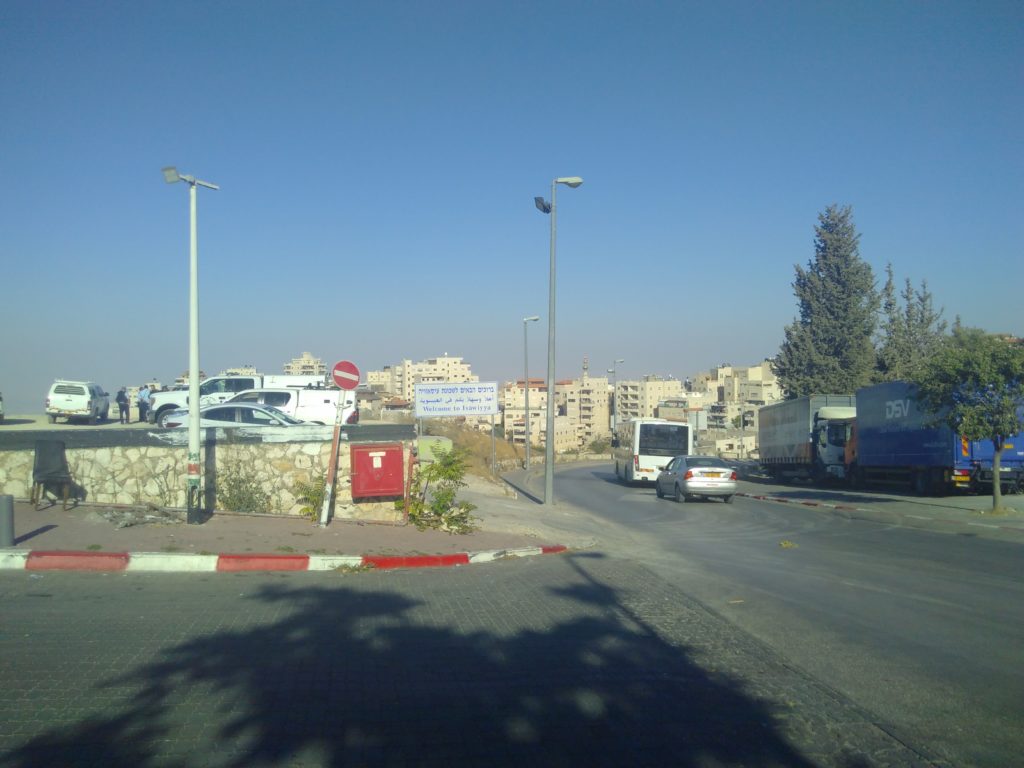
In any case, it is helpful not to forget how much small steps can eventually make a difference. For me part of that is writing this article. For you, it can be sharing this article or talking about it with your family & friends. And apart from this specific example, contribute to build a culture of change, compassion and kindness in your daily life and the world you live in. We, as individuals, are the source of change. And if you wonder how much you can do, the watchword according to the Dalai Lama is: “As much as possible, without going go extremes.” Whoever you are, wherever you live, whatever your background. We all share the same heart. Which, I observed, is saying the following: Being engaged is not an option. As becoming a force for good in the face of conflict, nearby and far away, is not something for tomorrow. It is a necessity. Now!
